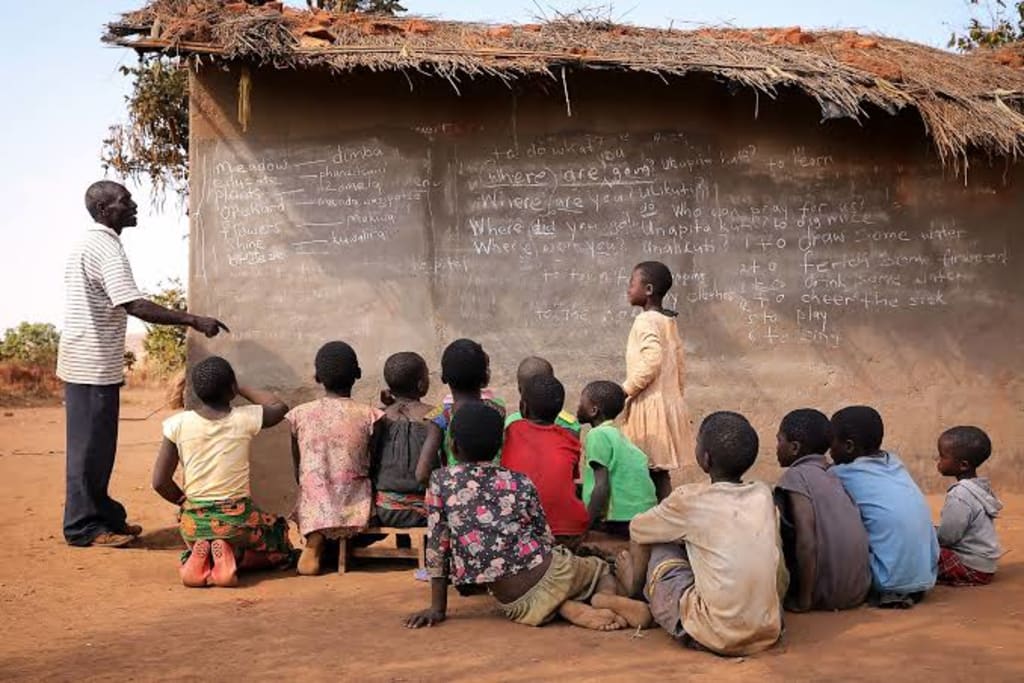Strategies and Comprehensive Solutions
For Sustainable Development in Undeveloped Countries

Firstly what to know about undeveloped country and how do eradicate it, and to make living comfortably for the citizens and providing amenities to promote the country for good,
Undeveloped countries face multifaceted challenges that require comprehensive strategies and holistic solutions to achieve sustainable development. This article presents a range of key strategies and total solutions aimed at addressing the root causes of underdevelopment and paving the way for lasting progress in these nations,
1👉Education and Human Capital Development:
Investing in education is essential for breaking the cycle of underdevelopment. Undeveloped countries should prioritize improving access to quality education, including primary, secondary, and tertiary levels. This involves building schools, training and hiring qualified teachers, and ensuring educational resources are available. Governments should also promote vocational training programs to equip individuals with marketable skills, fostering entrepreneurship and reducing unemployment rates.
2👉Economic Diversification and Sustainable Growth:
Overreliance on a single sector can hinder development and make countries vulnerable to economic shocks. Encouraging economic diversification is crucial for sustainable growth. Governments should create an enabling environment for entrepreneurship, attract investment in various sectors, and promote innovation and technological advancement. Special economic zones, tax incentives, and streamlined regulatory processes can help create favorable conditions for business development and job creation.
3👉Infrastructure Development and Connectivity:
A robust infrastructure network is vital for economic development. Governments should invest in transportation systems, including roads, railways, and ports, to facilitate the movement of goods and people. Access to reliable electricity and clean water is crucial for industrial growth and improving the quality of life. Additionally, expanding digital connectivity can enhance access to information, communication, and technology, enabling innovation and entrepreneurship in remote areas.
4👉Access to Basic Services and Social Development:
Access to basic services, such as healthcare, clean water, sanitation, and housing, is a fundamental right. Governments should prioritize the development of primary healthcare systems, including clinics and hospitals, and ensure affordable and accessible healthcare services for all citizens. Water and sanitation infrastructure should be improved to provide clean drinking water and proper sanitation facilities, reducing disease burdens. Affordable housing initiatives can help alleviate homelessness and improve living conditions.
5👉Sustainable Agriculture and Food Security:
Agriculture is a critical sector for many undeveloped countries. Implementing sustainable farming practices, such as organic farming and agroforestry, can promote environmental conservation and improve agricultural productivity. Governments should provide farmers with access to credit, modern farming technologies, and training programs. Promoting agricultural cooperatives and facilitating market access for farmers can enhance their income and contribute to food security.
6👉Good Governance and Institution Building:
Transparent and accountable governance is essential for sustainable development. Governments should establish strong institutions and enforce the rule of law to combat corruption and ensure effective public administration. Strengthening legal frameworks, promoting participatory decision-making processes, and enhancing public sector accountability can build trust, attract investments, and create an enabling environment for development.
7👉International Partnerships and Development Aid:
International cooperation and partnerships are crucial for the development of undeveloped countries. Developed nations and international organizations should provide development aid, technical assistance, and capacity-building support. Investment in sustainable development projects, knowledge transfer, and access to markets can help accelerate progress. South-South cooperation, where developing nations share experiences and best practices, can also foster development.
Conclusion:
Addressing the challenges faced by undeveloped countries requires a comprehensive and integrated approach. By implementing strategies focused on education, economic diversification, infrastructure development, access to basic services, sustainable agriculture, good governance, and international partnerships, these nations can achieve sustainable development and improve the well-being of their citizens. It is essential for governments, international organizations, and stakeholders to work collaboratively and invest in long-term solutions, ensuring a brighter future for undeveloped countries.





Comments
There are no comments for this story
Be the first to respond and start the conversation.